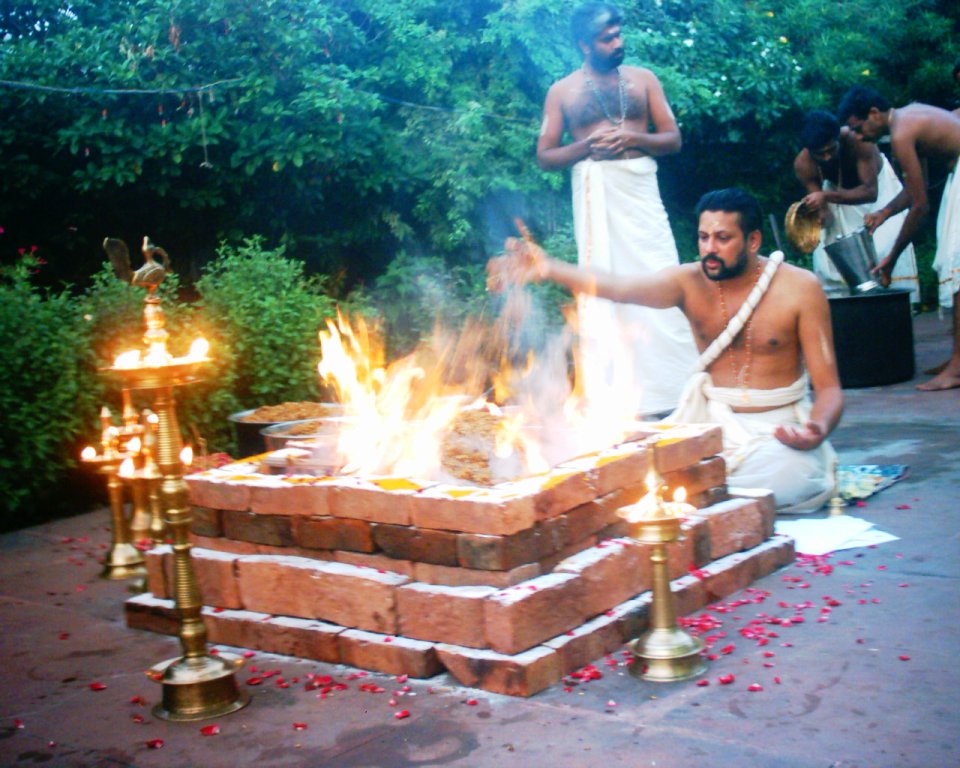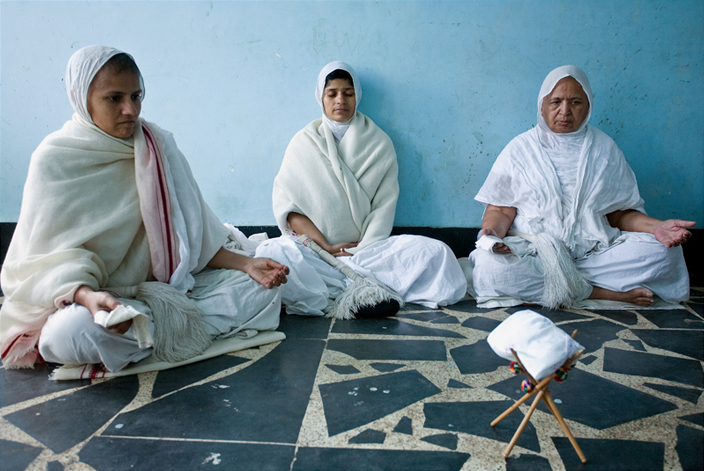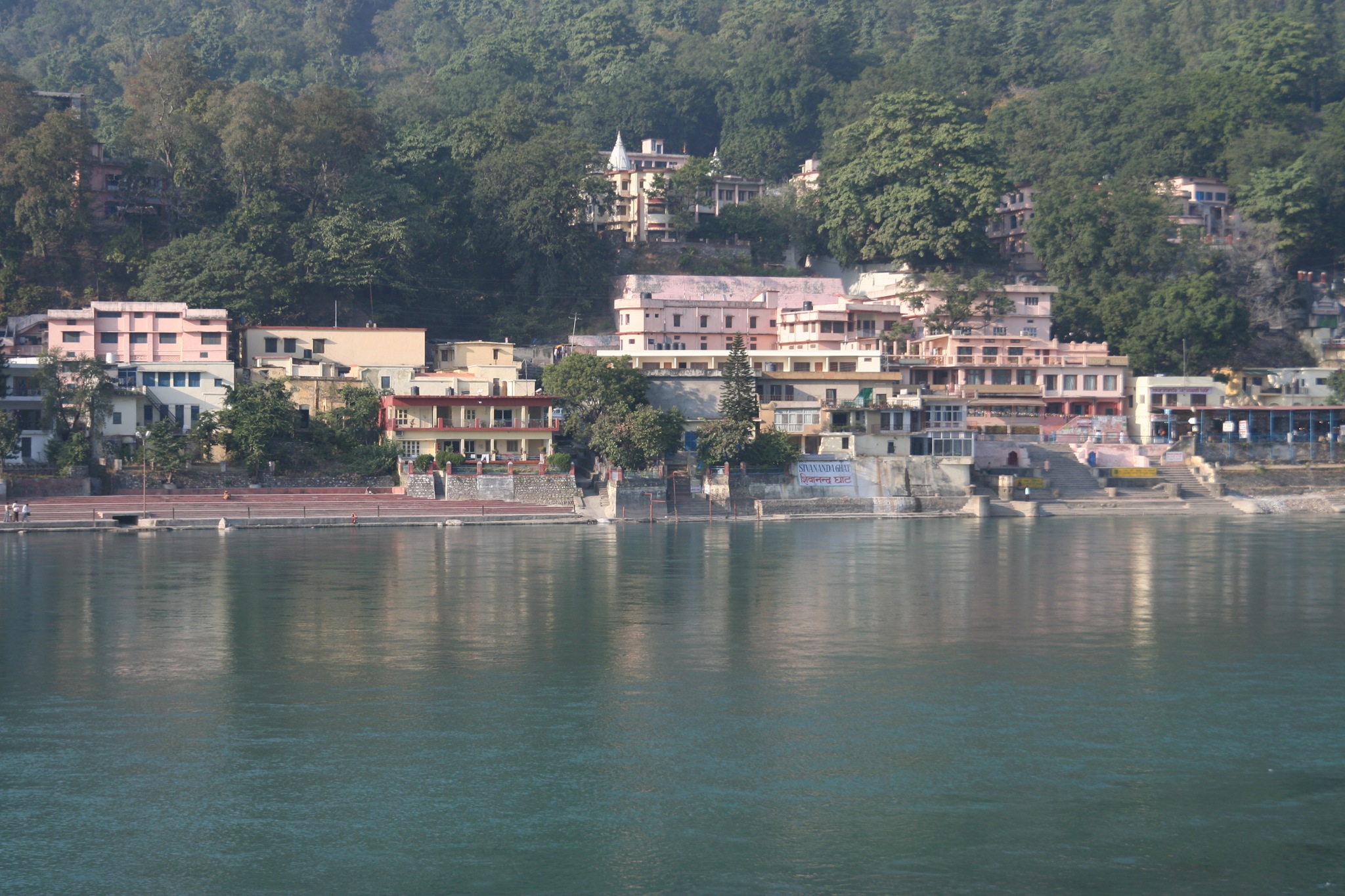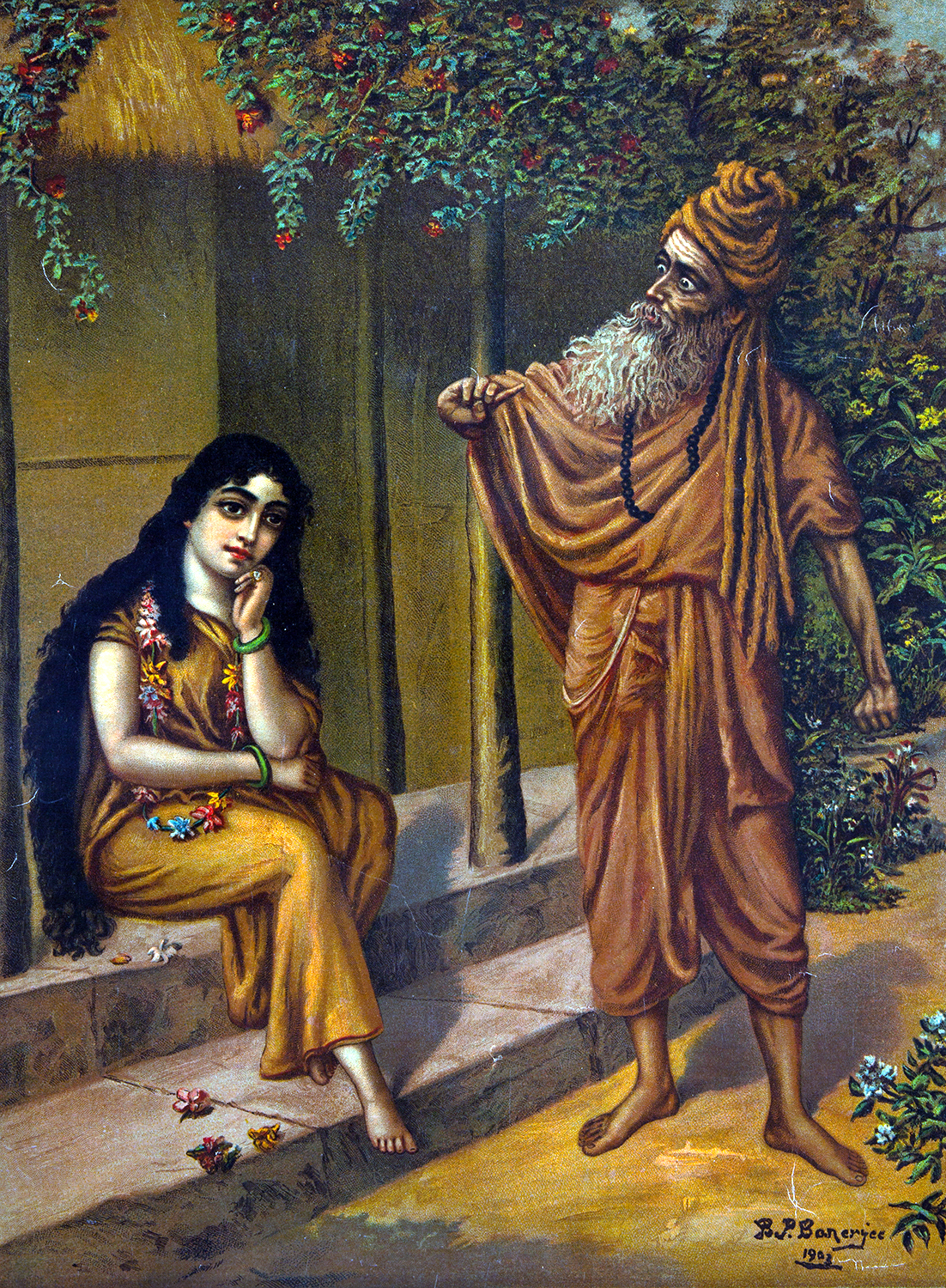|
Vishwamitra (TV Series)
''Vishwamitra'' was an Indian television series, which aired in 1989, produced and directed by Dasari Narayana Rao. The dialogues for the show were written by the Urdu poet Rahi Masoom Raza who previously wrote dialogues for Mahabharat. The show had its original run on DD National. Plot The story of show follows the character of Kshatriya King Vishwarath becoming a Brahmarishi Vishwamitra the sage after a feud with Sage Vashishtha over the divine cow Nandini. Cast Episodes Music Lyrics for various songs were written by Bhring Tupkari and music was composed by Vasu Rao. The title song was performed by Yesudas. Trivia 1. Bhanupriya and Shantipriya Shanthipriya is an Indian actress who has worked predominantly in Telugu, Tamil and Hindi films. She is credited as Nishanthi in Tamil films and Shanthipriya in Telugu and Hindi films. She is the younger sister of actress Bhanupriya. Career Sh ... , who played the reel-life mother-daughter in the serial, are real-life ... [...More Info...] [...Related Items...] OR: [Wikipedia] [Google] [Baidu] |
Dasari Narayana Rao
Dasari Narayana Rao (4 May 1947 – 30 May 2017) was an Indian film director, producer, screenwriter, actor, lyricist, and politician known for his works predominantly in Telugu cinema, in addition to Hindi cinema. He has directed more than 150 feature films in a variety of genres. He holds the '' Limca World Record'' for directing the most number of films in the world. He is known by the moniker ''Darsaka Ratna'' (). His works emphasize social injustice, corruption and gender discrimination. Narayana Rao has received two National Film Awards, nine state Nandi Awards including the Raghupathi Venkaiah Award, and four Filmfare Awards South including the Lifetime Achievement. During his career he had also acted in Telugu, Tamil, and Kannada films. Narayana Rao also gained recognition for directing Hindi films such as '' Swarag Narak'' (1978), '' Jyoti Bane Jwala'' (1980), '' Pyaasa Sawan'' (1981), '' Prem Tapasya'' (1983), '' Aaj Ka M.L.A. Ram Avtar'' (1984), '' Asha Jyoti'' ... [...More Info...] [...Related Items...] OR: [Wikipedia] [Google] [Baidu] |
Bhanupriya
Bhanupriya (born Mangabhanu; 15 January 1967) is an Indian actress, Kuchipudi dancer, and voice artist. In a career spanning over 4 decades, Bhanupriya has appeared in 155 feature films- predominantly in Telugu & Tamil, in addition to occasional performances in Malayalam, Kannada and Hindi films as well. She has started in a variety of roles, ranging from slapstick comedy-to-epic dramas. She has garnered three state Nandi Awards, two Tamil Nadu State Film Awards, two Filmfare Awards South and two Cinema Express Awards. Early life Bhanupriya was born on 15 January 1967 in Rangampeta village near Rajahmundry, Andhra Pradesh in a Telugu-speaking family, to Pandu Babu and Ragamali. She was named as Mangabhanu. Her family later moved to Chennai, Tamil Nadu. She has an elder brother Gopikrishana and a younger sister Shantipriya, who has also been a film actress since the 1990s. Career She was one of the mainstream top actresses for more than a decade from 1983 to 1995. She made her ... [...More Info...] [...Related Items...] OR: [Wikipedia] [Google] [Baidu] |
Yajna
Yajna ( sa, यज्ञ, yajña, translit-std=IAST, sacrifice, devotion, worship, offering) refers in Hinduism to any ritual done in front of a sacred fire, often with mantras.SG Nigal (1986), Axiological Approach to the Vedas, Northern Book, , pages 80–81 Yajna has been a Vedic tradition, described in a layer of Vedic literature called Brahmanas, as well as Yajurveda. The tradition has evolved from offering oblations and libations into sacred fire to symbolic offerings in the presence of sacred fire (Agni). Yajna rituals-related texts have been called the ''Karma-kanda'' (ritual works) portion of the Vedic literature, in contrast to ''Jnana-kanda'' (knowledge) portion contained in the Vedic Upanishads. The proper completion of Yajna-like rituals was the focus of Mimansa school of Hindu philosophy. Yajna have continued to play a central role in a Hindu's rites of passage, such as weddings. Modern major Hindu temple ceremonies, Hindu community celebrations, or monastic ini ... [...More Info...] [...Related Items...] OR: [Wikipedia] [Google] [Baidu] |
Brahma
Brahma ( sa, ब्रह्मा, Brahmā) is a Hindu god, referred to as "the Creator" within the Trimurti, the trinity of supreme divinity that includes Vishnu, and Shiva.Jan Gonda (1969)The Hindu Trinity Anthropos, Bd 63/64, H 1/2, pp. 212–226. He is associated with creation, knowledge, and the ''Vedas''. Brahma is prominently mentioned in creation legends. In some ''Puranas'', he created himself in a golden embryo known as the Hiranyagarbha. Brahma is frequently identified with the Vedic god Prajapati.;David Leeming (2005), The Oxford Companion to World Mythology, Oxford University Press, , page 54, Quote: "Especially in the Vedanta Hindu Philosophy, Brahman is the Absolute. In the Upanishads, Brahman becomes the eternal first cause, present everywhere and nowhere, always and never. Brahman can be incarnated in Brahma, in Vishnu, in Shiva. To put it another way, everything that is, owes its existence to Brahman. In this sense, Hinduism is ultimately monotheistic or m ... [...More Info...] [...Related Items...] OR: [Wikipedia] [Google] [Baidu] |
Tapas (Indian Religions)
Tapas (Sanskrit: तपस्) is a variety of austere spiritual meditation practices in Indian religions. In Jainism, it means asceticism (austerities, body mortification); in Buddhism, it denotes spiritual practices including meditation and self-discipline; and in the different traditions within Hinduism it means a spectrum of practices ranging from asceticism, inner cleansing to self-discipline by meditation practices. The ''Tapas'' practice often involves solitude, and is a part of monastic practices that are believed to be a means to moksha (liberation, salvation). In the Vedas literature of Hinduism, fusion words based on ''tapas'' are widely used to expound several spiritual concepts that develop through heat or inner energy, such as meditation, any process to reach special observations and insights, the spiritual ecstasy of a yogin or ''Tāpasa'' (a vṛddhi derivative meaning "a practitioner of austerities, an ascetic"), even warmth of sexual intimacy.Kaelber, W. O. (197 ... [...More Info...] [...Related Items...] OR: [Wikipedia] [Google] [Baidu] |
Ashram
An ashram ( sa, आश्रम, ) is a spiritual hermitage or a monastery A monastery is a building or complex of buildings comprising the domestic quarters and workplaces of monastics, monks or nuns, whether living in communities or alone (hermits). A monastery generally includes a place reserved for prayer which ... in Indian religions. Etymology The Sanskrit noun is a thematic nominal derivative from the root 'toil' (< Proto-Indo-European, PIE *''ḱremh2'') with the prefix 'towards.' An ashram is a place where one strives towards a goal in a disciplined manner. Such a goal could be ascetic, spirituality, spiritual, yogic or any other. Overview  An ashram wo ...
An ashram wo ...
[...More Info...] [...Related Items...] OR: [Wikipedia] [Google] [Baidu] |
Gaadhi
Gādhi, historically known as Gāthin, was the father of Viśvāmitra. Gāthin Kauśika was a Rig Vedic rishi and the author of two hymns in Mandala 3 The third Mandala of the Rigveda has 62 hymns, mainly to Agni and Indra. It is one of the "family books" (mandalas 2-7), the oldest core of the Rigveda, which were composed in early Vedic period (1500 - 1000 BCE). Most hymns in this book are attrib ... of the Rigveda. In later Hindu texts he is the king of Mahodayapuram, and also the father of Satyavatī, the wife of R̥cīka. = Rigveda = In the Rigveda Book 1 Hymn 10, it is said that Indra incarnated as the son of Kusika, who was Gaadhi's father. Worshipping Gaadhi is said to bring "Prolong our life anew, and cause the seer to win a thousand gifts". = Mahabharat = In the Shanti Parva, Chapter 49, of the Mahabharat scripture Kuśika began tapas for a son who would be equal to Indra and could not be killed by others. Pleased with his tapas Indra voluntarily took birth as Kuśik ... [...More Info...] [...Related Items...] OR: [Wikipedia] [Google] [Baidu] |
Mohan Choti
Mohan Choti (1935 – 1 February 1992) was an Indian actor who worked as a comedian in Hindi films. The name Mohan Choti came from a fictional character of the same name from the 1957 film '' Musafir'', in which he plays a tea shop delivery boy who sports a "choti" or traditional lock of hair on the top of his head. Biography Mohan Choti was born as Mohan Rakshakar to Constable Atmaram Rakshakar in 1933 at Amravati, Amravati District Maharashtra. He produced and directed two films — "Dhoti Lota Aur Chowpatty" and "Hunterwali 77". He also opened a restaurant which was called "Sawal roti ka; Dhaba choti ka". He also started Atta distribution unit called "Choti Walla Atta". He died on 1 February 1992 at the age of 57. Filmography Mohan Choti acted in nearly 280 films from 1954 to 1994. * 1994 Do Fantoosh * 1994 Mere Data Garib Nawaz * 1993 Badi Bahen * 1993 Kala Coat * 1993 Shuruaat * 1992 Sarphira * 1992 Naseebwaala * 1991 Ajooba as Ladies Tailor (Special Appearan ... [...More Info...] [...Related Items...] OR: [Wikipedia] [Google] [Baidu] |
Dushyanta
Dushyanta ( sa, दुष्यन्त, translit=Duṣyanta) is a king of the Chandravamsha (Lunar) dynasty featured in Hindu literature. He is the husband of Shakuntala and the father of Bharata. He appears in the Mahabharata and in Kalidasa's play, Abhijnanashakuntalam ( 300 CE). Legend According to the ''Mahabharata'', Dushyanta is the son of Ilin and Rathantī, also rendered Ilina and Rathantara, respectively. According to primogeniture, Dushyanta succeeds his father, for he is the eldest among his siblings Sura, Bhima, Pravashu, and Vasu. He rules as the king of Hastinapura. Mahabharata The Mahabharata narrates that King Dushyanta was once hunting in the forests, when he struck a fawn with his arrow. The fawn fled to the ashrama of Sage Kanva, and the king followed it. Upon reaching the ashrama, the king saw Shakuntala watering the plants, accompanied by her friends, named Anasuya and Priyamvada. Dushyanta and Shakuntala fell in love with each other. Since the ... [...More Info...] [...Related Items...] OR: [Wikipedia] [Google] [Baidu] |
Maganti Sudhakar (Telugu Actor)
Maganti Ankineedu (born 1 January 1915, date of death 8 September 2008) was an Indian independence activist, politician and Member of parliament, Lok Sabha. He was born to Maganti Venkata Ramdas at Tamirisa village, Krishna district. He was educated at Hindu College, Machilipatnam. He participated in the Indian independence movement and imprisoned twice during the Civil Disobedience Movement and the Quit India Movement. He was elected to 3rd Lok Sabha,4th Lok Sabha, 5th Lok Sabha,from Gudivada constituency and 6th Lok Sabha and 7th Lok Sabha from Machilipatnam constituency as a member of Indian National Congress in 1962,1967,1972,1977 and 1980 respectively. Family He is the uncle of Telugu film actor Venu Thottempudi Venu Thottempudi (born 4 June 1976) is an Indian actor who primarily works in Telugu cinema. He has appeared in several successful Telugu films as a lead actor. Career After finishing his engineering from Dharwad Engineering College, Venu star ... Refe ... [...More Info...] [...Related Items...] OR: [Wikipedia] [Google] [Baidu] |
Shakuntala
Shakuntala (Sanskrit: ''Śakuntalā'') is the wife of Dushyanta and the mother of Emperor Bharata. Her story is told in the '' Adi Parva'' of the ancient Indian epic ''Mahabharata'' and dramatized by many writers, the most famous adaption being Kalidasa's play ''Abhijñānaśākuntala'' (''The Sign of Shakuntala''). Legends Birth Once, Vishvamitra started to meditate to earn the status of a Brahmarshi. The intensity of his penance frightened Indra. He feared that Vishvamitra might want his throne. To end his penance, Indra sent Menaka, an apsara, to lure him and bring him out of his penance. Menaka reached Vishwamitra's meditating spot and started to seduce him. Vishvamitra could not control his lust and desire and his penance was broken. Vishvamitra and Menaka lived together for a few years and a daughter was born to them. Later, Vishvamitra realized that all those things were Indra's tricks. He realized that he needed to control his emotions. Vishvamitra left Menaka and Me ... [...More Info...] [...Related Items...] OR: [Wikipedia] [Google] [Baidu] |
Shantipriya (actress)
Shanthipriya is an Indian actress who has worked predominantly in Telugu, Tamil and Hindi films. She is credited as Nishanthi in Tamil films and Shanthipriya in Telugu and Hindi films. She is the younger sister of actress Bhanupriya. Career Shanthipriya acted in several films, including ''Enga Ooru Pattukaran'' (1988). She was also seen in the TV sci-fi epic ''Aryamaan – Brahmaand Ka Yodha'' opposite Mukesh Khanna in 2002. Shanthipriya made her debut with the Akshay Kumar-starrer '' Saugandh''. She has acted with Mithun Chakraborty in movies such as '' Mere Sajana Saath Nibhana'', ''Phool Aur Angaar'' and '' Meherbaan''. She has acted in ''Hamilton Palace'' along with Mahakshay Chakraborty, son of Mithun. Shanthi Priya to make comeback in 2022 with Sarojini Naidu biopic. Family Shanthipriya married actor Siddharth Ray in 1999. Siddharth was the grandson of V. Shantaram Shantaram Rajaram Vankudre (18 November 1901 – 30 October 1990), referred to as V. Shantaram or Sha ... [...More Info...] [...Related Items...] OR: [Wikipedia] [Google] [Baidu] |





